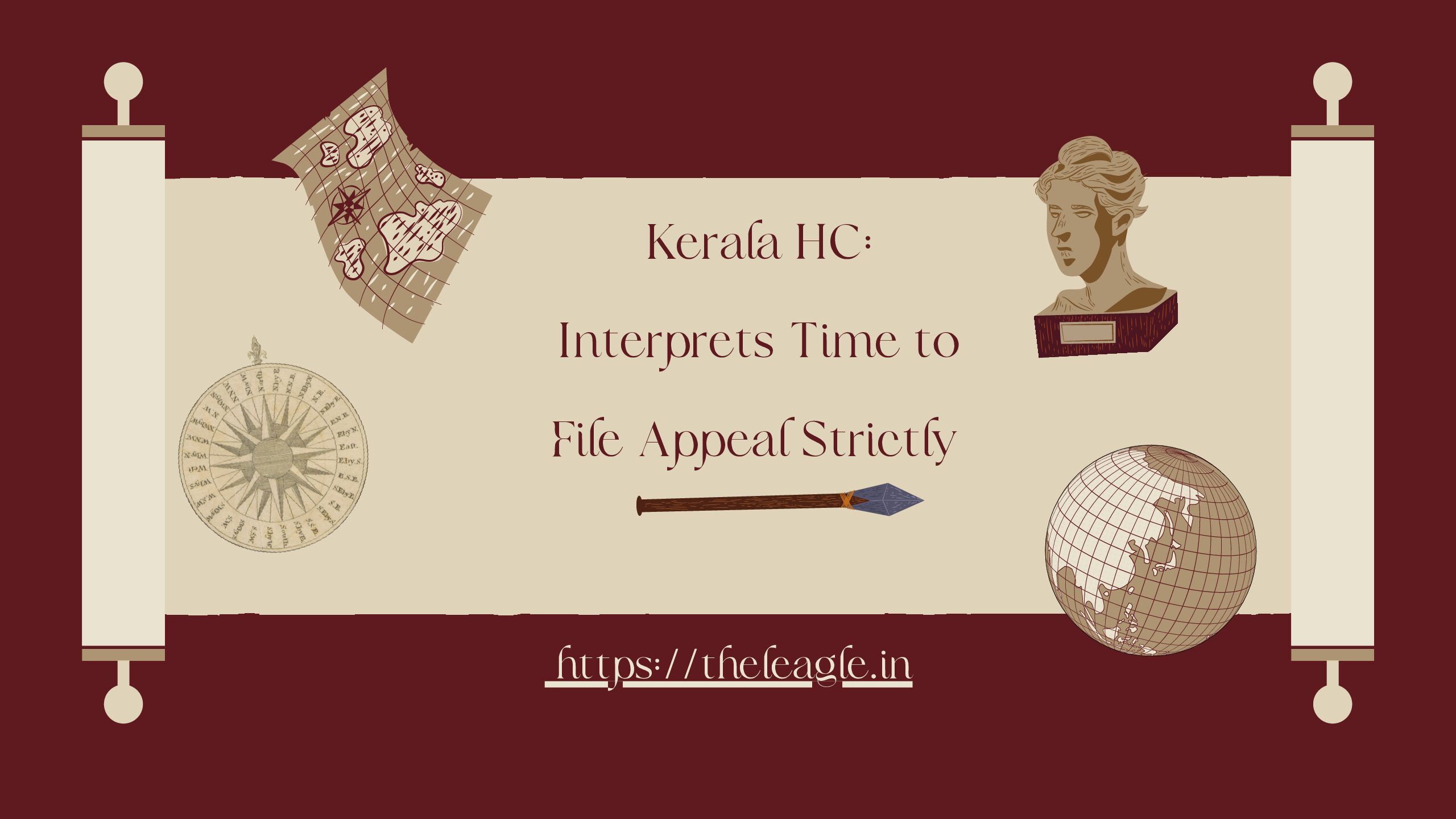Short Note
In a concise judgment[1], the Kerala High Court dismissed writ petition of a taxable person and held that an appeal under CGST Act, 2017 must be filed before the appellate authority in a time bound manner. The High Court held that the time prescribed for appeal under CGST Act, 2017 must be interpreted strictly.
Introduction
The petitioner/taxable person did not file its GST returns in a time bound manner due to COVID-19. The proper officer exercised the power under Section 29(2)(c), CGST Act, 2017 wherein the registration of a taxable person can be cancelled if returns are not filed for a continuous period of six months. The petitioner filed an appeal against the order of cancellation of registration, but after the time prescribed under CGST Act, 2017. Section 107(4), CGST Act, 2017 states as follows:
“The Appellate Authority may, if he is satisfied that the appellant was prevented by sufficient cause from presenting the appeal within the aforesaid period of three months or six months, as the case may be, allow it to be presented within a further period of one month.”
Thus, the appellate authority has, in certain cases, the power to extend the time of appeal only by one month after the expiry of initial 3/6 months, whichever is applicable. The taxpayer had filed an appeal even after the additional one month had expired.
High Court Denies the Claim of Petitioner
The Kerala High Court relied on a couple of precedents[2] where the Supreme Court while interpreting similar provisions under the Central Excise Act, 1944 had held that the provisions prescribing an outer time limit for filing appeals operated to the exclusion of Limitation Act, 1963. The High Court observed that Section 107(4), CGST Act, 2017 was analogous to the provisions of Central Excise Act, 1944 and concluded that:
The Central Goods and Services Tax Act is a special statute and a self-contained code by itself. Section 107 is an inbuilt mechanism and has impliedly excluded the application of the Limitation Act. It is trite, that the Limitation Act will apply only if it is extended to the special statute. It is also rudimentary that the provisions of a fiscal statute have to be strictly construed and interpreted. (para 10)
Accordingly, the High Court dismissed the petitioner’s argument that the Revenue dismissing its appeal against cancellation of registration was arbitrary.
Conclusion
The Kerala High Court’s judgment establishes with clarity that the taxpayer is bound to obey the time limit prescribed under CGST Act, 2017 and cannot rely on extraneous factors to extend the time period prescribed for filing appeals before the appellate authorities. In this case, the petitioner was indirectly invoking COVID-19 as an excuse, which was not accepted by the High Court. Further, the High Court, in accordance with the well-established precedents in pre-GST regime held that the Limitation Act cannot come to the rescue of petitioners in extending the time period for filing appeals. CGST Act, 2017, the High Court clarified, operates like a self-contained code for the purpose of time period for filing appeals. Though it would be interesting to observe if the Courts interpret any exceptions to the outer time period if the taxpayer has a genuine hardship and is able to establish it convincingly before Courts.
[1] Penuel Nexus Pvt Ltd v The Additional Commissioner Headquarters (Appeals) 2023 LiveLaw (Ker) 280.
[2] Singh Enterprises v Commissioner of Central Excise, Jamshedpur and Others (2008) 3 SCC 70; CCE & Customs v Hongo India (P) Ltd (2009) 5 SCC 791.
